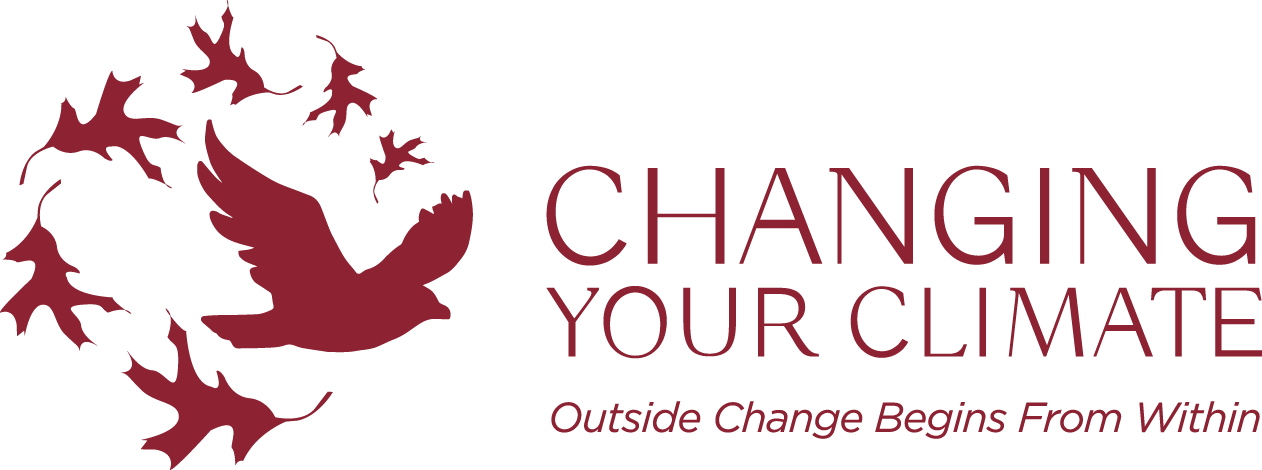You’ve seen them. If not first-hand, certainly in the news and on your Twitter feed. Ice core readings and glacial melt. Climate scientists fired in Australia. Drought, the new norm in the Southwest. How do we stay afloat amongst these dismal realities of climate change. How do we press forward into meaningful and effective climate action without losing hope and motivation?
We choose hope.
It’s tempting to believe that hope is circumstantial, that there is no hope until certain conditions are met. However, from my perspective as a passionate educator, facilitator, and climate coach, I’ve seen and experienced that hope can be chosen… and fostered. When we choose hope as an intentional practice, it shows up in the actions we take and the positive effect that those actions have on those around us. According to The Bottom-Line Benefits of Hope, and Shane J. Lopez pH.D in his book,Making Hope Happen, not only can hope be learned and taught, but “hope is the basis of all positive change because hope is the belief that things could be better and one can make them so.”
The key to choosing hope and being more effective is to consider our current state of being — our thoughts, feelings and state of mind — as we decide what to let in from the world around us.
When we’re physically sick, this concept is pretty easy. We know what we want, what we need and what we don’t, and we do our best to fulfill those needs. We sleep. We eat broth and Saltines, with time. And we avoid the food or drink from the night before that triggers us, emotionally or physically.
Can we do the same with climate hope?
There are times when we feel on top of the world: Our job is going great, we just got a raise! Our marriage is smooth, the therapy is working. We feel confident as parents, and we just had our biggest CCL meeting yet! During these times, there may be plenty of room for climate despair. Bring on the articles. Dive into those conversations about massive calving glaciers and “vicious east coast snowstorms.” Our foundation is strong, and we feel strong and supported enough to tackle what’s needed.
On the flipside, we’ve all had days, weeks, seasons even, where life is just way too hard. Our dog is old and dying, legs splaying on the kitchen floor. We want to feel valued in the world, but aren’t sure where to begin. Medical insurance was supposed to kick in, but didn’t. Naturally, we’re much more inclined to feel hopeless and despondent in response to any of the dismal climate realities that come crashing into our lives.
When we’re aware of and fully accept our current state of being, we can better discern how much and what type of information will leave us feeling hopeful. In this way, by discerning how we spend our time, we are choosing hope. We might even consider our personality and overall tendencies and values when making decisions. I have come to realize, for example, that I value security, and if I’m not careful, tend towards fear —perhaps a good part of the reason that I am motivated to mitigate climate change and work with CCL. Learning this about myself, and getting to a point where I can honor this as my current way of existing in the world, has allowed me to filter information and focus, not to the point of wearing blinders, but simply in a way that allows me to choose what and how I’d like to be affected.
According to a new report from the American Psychological Association and ecoAmerica, “Climate change will have significant negative impacts on Americans’ health and psychological well-being…Likely effects […] include stress, anxiety, depression and a loss of community identity.” When we consider this information, we are being intentional about our actions, factoring in the value and importance of adorning our own oxygen mask before looking to others with theirs. This surely isn’t rocket science (it’s technically cognitive science, right?), but it’s not easy to be pro-active when our habits dictate otherwise. It’s so tempting to believe that having all the information will help us take the right actions and move us in the ‘right’ direction…
But it’s really hope that will do that.
The post by Tamara Staton, Choosing hope to take more effective climate action, appeared first on Citizens' Climate Lobby.



